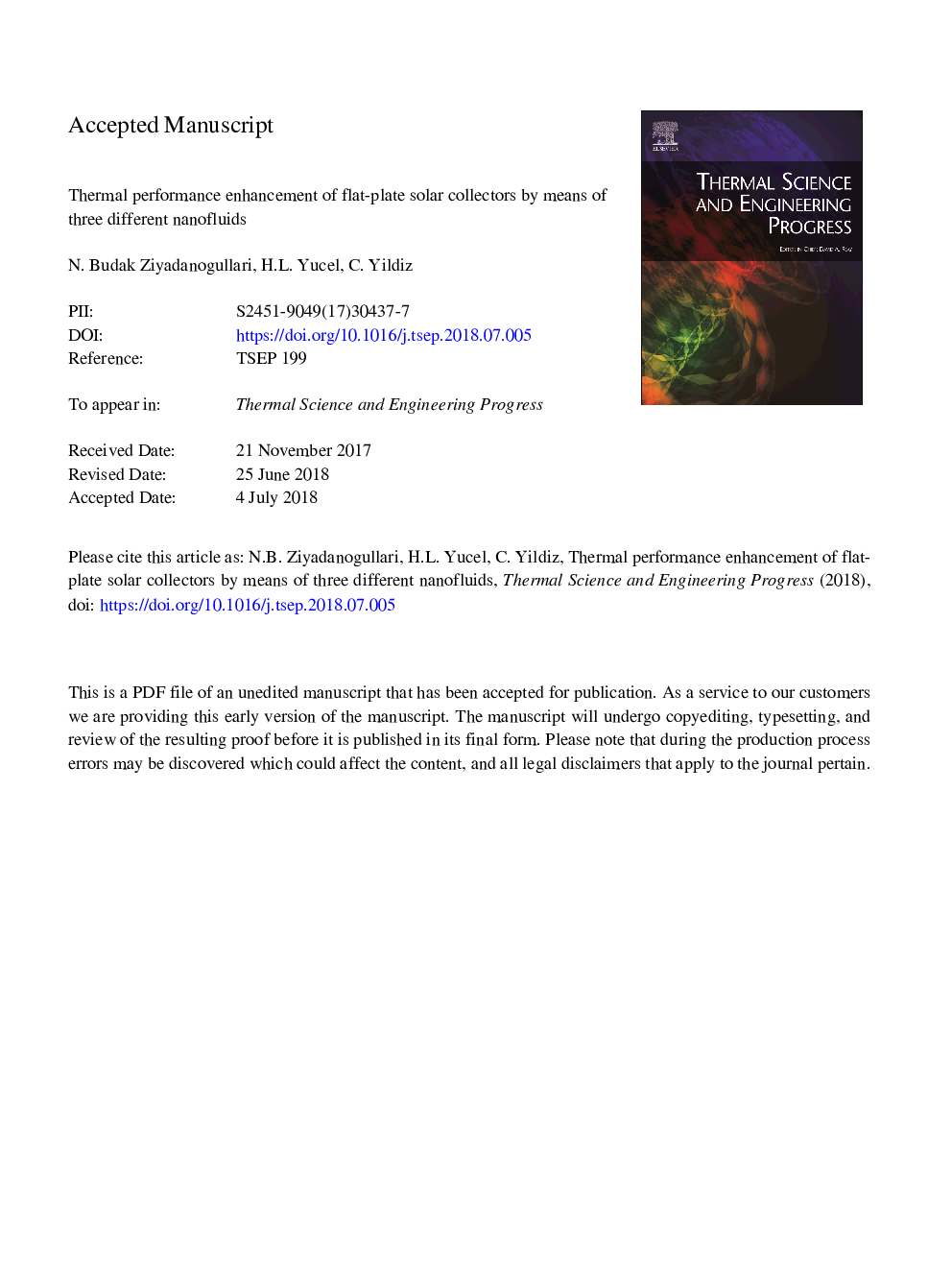| Article ID | Journal | Published Year | Pages | File Type |
|---|---|---|---|---|
| 8918634 | Thermal Science and Engineering Progress | 2018 | 21 Pages |
Abstract
Solar energy, which comes first among renewable energy sources, enables efficient use of energy with many applications due to its low operating cost and environmental friendliness. In this study, we experimentally investigated the effects on thermal efficiency of nanofluid and water as working fluids in flat-plate solar collector hot water solar energy systems. Nanofluids were prepared by adding Al2O3, CuO, and TiO2 nanoparticles at 0.2, 0.4, and 0.8â¯vol% into distilled water, and then the thermophysical properties (thermal conductivity, viscosity) of the prepared nanofluids were determined. Flow rate was adjusted to 250â¯l/h at given concentrations for each nanofluid in the experimental setups and data such as collector inlet and outlet temperatures, ambient and tap water temperatures; radiation, humidity, and wind speed were measured and recorded. The obtained data were used to calculate efficiencies according to ASHRAE 93-2003 standards. When compared with water, the results indicated that the use of nanofluid increased collector efficiency.
Related Topics
Physical Sciences and Engineering
Energy
Energy Engineering and Power Technology
Authors
N. Budak Ziyadanogullari, H.L. Yucel, C. Yildiz,
